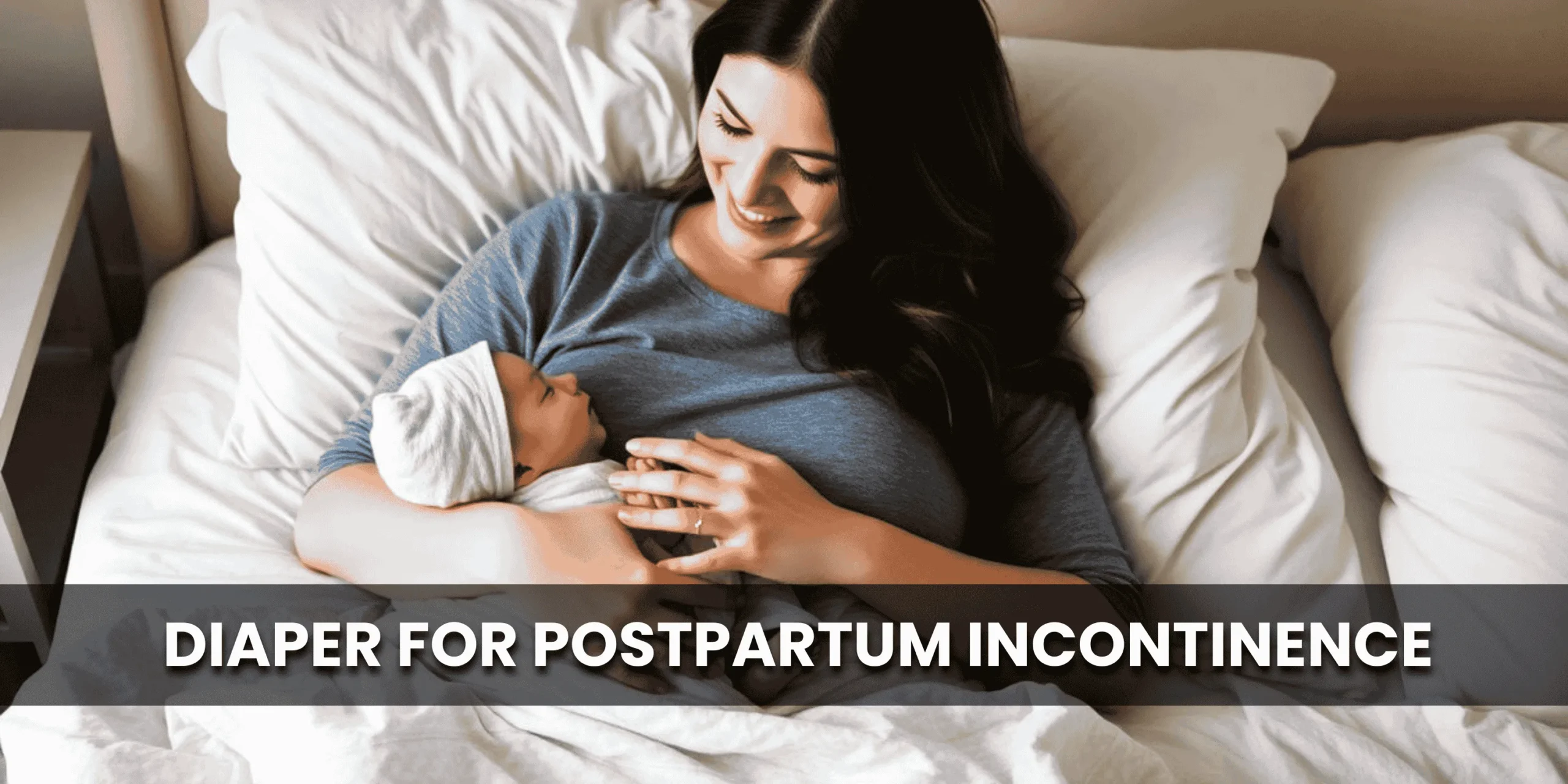Motherhood is a beautiful and transformative journey, but it also brings several physical changes, some of which can be challenging. One such condition that many new moms experience is postpartum incontinence—a temporary loss of bladder control following childbirth. This can lead to unexpected leaks during daily activities, impacting a mother’s confidence and comfort.
Thankfully, there are effective solutions, such as using a diaper for postpartum incontinence, designed to provide protection and peace of mind. In this guide, we will discuss everything a new mom needs to know about postpartum incontinence, including common concerns, causes, and solutions.
What is Postpartum Incontinence?
Postpartum incontinence refers to the involuntary leakage of urine after childbirth. It happens due to the weakening of pelvic floor muscles, which support the bladder and control urine flow. Many moms notice this issue when they cough, sneeze, laugh, or lift something heavy.
Why Does Postpartum Incontinence Happen?
Postpartum incontinence is common and can be caused by several factors:
- Pelvic Floor Weakness – During pregnancy and childbirth, the pelvic muscles stretch to accommodate the baby, making them weaker.
- Hormonal Changes – After delivery, hormone levels shift, affecting bladder control.
- Vaginal or C-Section Delivery – While vaginal birth puts more strain on pelvic muscles, C-section deliveries can also cause bladder issues due to changes in abdominal pressure.
- Nerve Damage – The nerves controlling bladder function may get stretched or compressed during labor.
- Increased Pressure – The weight of the growing baby during pregnancy puts pressure on the bladder, which can continue after birth.
Is Postpartum Incontinence Permanent?
For most women, postpartum incontinence is temporary and improves with time. Strengthening pelvic muscles through exercises like Kegels can help restore bladder control. However, if symptoms persist beyond six months, it is advisable to consult a healthcare provider.
How Long Does Postpartum Incontinence Last?
The duration varies from woman to woman. Some moms recover within a few weeks, while others may experience symptoms for months. If leakage continues beyond six months to a year, medical intervention may be required.
How Can I Manage Postpartum Incontinence?
Here are some effective ways to manage postpartum incontinence:
- Use a Diaper for Postpartum Incontinence – Specially designed adult pull-up diapers, like Dr.C Adult Pull-Ups, provide maximum absorption and protection, helping new moms stay confident.
- Practice Kegel Exercises – These exercises strengthen pelvic floor muscles and improve bladder control.
- Monitor Fluid Intake – Drink enough water, but avoid excessive caffeine and alcohol, which may irritate the bladder.
- Empty Your Bladder Regularly – Timed voiding (urinating every 2-3 hours) can help prevent accidents.
- Maintain a Healthy Diet – Foods rich in fiber prevent constipation, which can put additional pressure on the bladder.
- Wear Absorbent Underwear – Postpartum-friendly absorbent underwear can provide extra protection.
How Do Diapers Help with Postpartum Incontinence?
Using a diaper for postpartum incontinence provides multiple benefits:
✅ High Absorption – Prevents leaks and keeps the skin dry. ✅ Zero Leakage – Advanced gel-core technology locks in moisture. ✅ Odor Control – Neutralizes odor for freshness. ✅ Slim Fit Design – Comfortable and discreet under clothing. ✅ Long-Hour Protection – Ideal for day and night use.
Products like Dr.C Adult Pull-Ups offer 12-hour leak protection and ensure a stress-free experience for new moms.
FAQs About Diaper for Postpartum Incontinence
1. Do all women experience postpartum incontinence?
Not all women experience incontinence, but it is a common issue. Factors like genetics, multiple pregnancies, delivery method, and pre-existing conditions can affect its occurrence.
2. Can postpartum incontinence be prevented?
While it cannot always be completely prevented, strengthening pelvic floor muscles before and during pregnancy through Kegel exercises can reduce the risk.
3. Are postpartum diapers safe to use daily?
Yes, diapers for postpartum incontinence are made with breathable, skin-friendly materials that are safe for everyday use.
4. How do I choose the right postpartum diaper?
Look for a diaper with high absorbency, comfort, odor control, and a snug fit. Dr.C Adult Pull-Ups are a great choice for postpartum moms.
5. When should I see a doctor?
If incontinence continues beyond six months to a year, or if it worsens, consult a doctor to explore additional treatments.
Final Thoughts: Regain Confidence with the Right Care
Postpartum incontinence is a temporary condition that many moms face, but it shouldn’t stop you from enjoying motherhood. Using the right diaper for postpartum incontinence, like Dr.C Adult Pull-Ups, combined with pelvic exercises and lifestyle adjustments, can help you regain confidence and comfort.
💙 Embrace motherhood without worries! 💙
📩 Want to learn more? Contact us today or visit www.myrealcare.com to explore our postpartum care products.
#PostpartumCare #DiaperForPostpartumIncontinence #Motherhood #DrCAdultPullUps #ConfidenceForMoms

